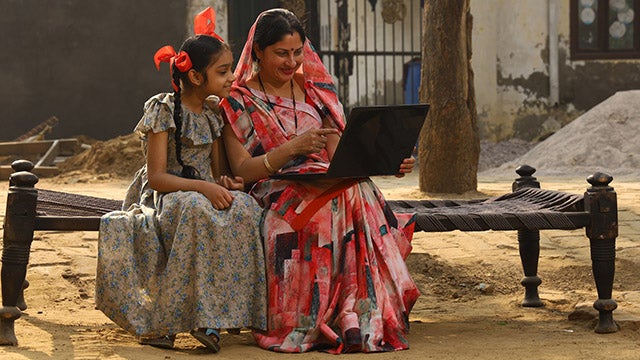Tonight, one in eight of the world’s people – some 842 million men, women and children – will go to bed hungry. In the developing world, one child in four is stunted, physically and mentally, because they do not have enough to eat.
The good news is that it doesn’t need to be this way. There are many proven strategies to fight hunger. But one strategy has not received enough attention: ensuring that all women have access to family planning and other reproductive health services.
What’s the connection between family planning and hunger? Poverty. The fact is, there is more than enough food for everyone on the planet. Most people go hungry because they are simply too poor to buy enough to eat. But, when women are able to plan and space their childbearing, they are better able to care for themselves — to protect their health, to get an education, and to earn a decent living. As a result, they and their families are less likely to be poor.
Family planning fights poverty at the national level, as well. It leads to lower birthrates, which saves money that nations can invest in health care, infrastructure, and job creation. Indeed, every dollar invested in family planning and reproductive health services can save up to $31 on spending for education, food, health, housing, and sanitation. This is the “demographic dividend” that powered the rise of the Asian Tiger economies over the last few decades.
By fighting poverty, family planning can help end the scourge of hunger today. It can also help meet the larger challenge of feeding humanity in the future.
The Food and Agriculture Organization says that food production must increase 70% by 2050 to meet rising demand. But that will not be easy in a world reeling from the impacts of climate change. The World Bank warns that we are now on track for 4°C of warming, which will bring extreme heat waves, searing drought and rising sea levels — all of which could have devastating impacts on agriculture.
By slowing population growth, family planning can lower the hurdles that agriculture must leap. Slower growth will also reduce pressure on the natural systems that support life. A host of environmental problems — including climate change, water scarcity, and biodiversity loss—will be far easier to address if world population peaks at 9 billion, rather than climbing to 11 billion or more.
Family planning is crucial to food security and sustainability, now and in the future. Incredibly, there are still 222 million women in the developing world who wish to plan their families, but lack meaningful access to these services.
This week, global leaders are assembling at the annual meetings of the World Bank Group and the International Monetary Fund to discuss the intertwined challenges of food security, development and climate change. I urge them to remember that family planning and reproductive health services are vital to women’s rights — and can help us meet the challenges of the 21st century.

